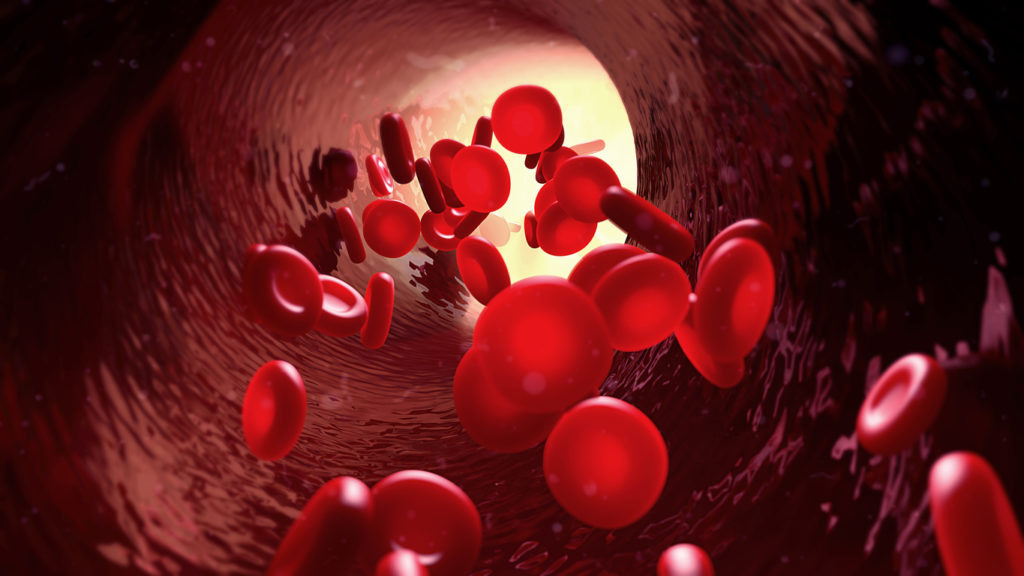Tiredness is one of the most common reasons to go see a doctor, and one of the more common reasons for people being tired is that they might be anaemic. Dr Joe Kosterich talks about anaemia, including what it is, different types of anaemia, what causes it, how to test for it and how to treat it.
Transcript
Tiredness is one of the commonest reasons people come in see me as a doctor, and one of the commoner reasons for people being tired is that they might be anaemic.
Hi, I’m Dr. Joe.
Anaemia is a lack of red blood cells within the bloodstream so it’s a lower level of haemoglobin. For those who want to get technical we’re talking about the oxygen carrying capacity of the bloodstream. Oxygen being carried on haemoglobin on the red blood cells.
The body turns over its red blood cells roughly every 90 days and to do that, a little bit like building a house or making anything else, the body requires certain components to make those red blood cells. The key ones are: iron, vitamin B12 and to a lesser degree folic acid. Now you also need protein and other nutrients like you do for other parts of the body.
When it comes to anaemia though, the 2 key components are iron and B12, but we’ll come back to that in a moment. There is a number of different forms of anaemia: iron deficiency anaemia being a common one, obviously vitamin B12 deficiency, there are also some congenital conditions, one known as Thalassaemia and there’s particular tests that can be done for that, there are also illnesses known as Sickle Cell Anaemia and some other rarer forms. Anaemia can be associated with other illnesses, including kidney disease, liver disease and some forms of cancer, but for the purposes of this video we’ll be talking about anaemia that’s related to deficiency states.
Now, one of the differences between men and women, and there are a number, is that women will be, in their reproductive years at least, losing some blood each month when they have their periods. Now with that goes an amount of iron. If that iron is not being replaced in sufficient quantities then women can become deficient in iron and in turn if their iron deficiency becomes severe enough they will start to become anaemic. It’s a little bit like trying to build a house and there’s a shortage of bricks. You can’t build a house if you haven’t got enough bricks. You can’t make enough haemoglobin if you haven’t got enough iron.
Typically the symptoms will be tiredness, and one of the simplest tests to do when you go along to see your doctor is a full blood count and that will show your red and white cells, and coupled with that an iron level test which can show levels of iron in the bloodstream and also your iron stores. It’s really quite common to see in women, and sometimes in men but less commonly, low levels of iron. If this can be picked up in an early stage you can actually be treated with an iron replacements, iron supplements, before getting into full blown anaemia.
Iron levels move fairly slowly so you may need to be on it for 3 months or so, and for some women they may need to be on it from time to time. Again if there were reasons why you were losing iron, for example heavy periods, then it’s sometimes about treating the underlying problem, and I should point out previously in other cases where there are underlying diseases then obviously those need to be treated.
Alright, the other key component in making red blood cells is vitamin B12 and this can also be measured on a blood test. There’s a particular type of anaemia called Pernicious Anaemia and this is where people don’t actually absorb the vitamin B12 from the gut, and there’s another blood test that can be done to check for that.
If that’s the case then vitamin B12 can be administered as an injection and for people with true Pernicious anaemia they might need injections every maybe 2 or 3 months pretty much for the rest of their life because even putting them on a vitamin B12 supplement won’t work because they are not going to absorb it. For all the other people though it is about being on a vitamin B12 supplement.
Now, it’s good to be on a healthy diet and get these components from our food. Vitamin B12 typically found in animal rather than vegetable-based products, but mushrooms are reasonable for B12. Iron obviously found in meat, red meat in particular, also in spinach and cabbage and some other green vegetables. If you are deficient in these compounds though, diet will not be enough by itself. To maintain it, sure, healthy diet is critical but to boost the levels you may need a supplement.
With iron there are different forms, there can be tablets, there are liquids. Iron injections are available, they’re not that popular for a number of reasons, they can be a little bit painful and can sometimes leave bruising or marking scars. In some places it’s possible to have an infusion of iron straight into the bloodstream and that’s something obviously to chat about with your doctor.
So if you are feeling symptoms of tiredness and it is a very common symptom, it is worth going along to your doctor. If it is related to anaemia then it is something to pick up early and usually it’s going to be fairly straight forward to treat.
More information
 |
For more information on Iron Deficiency Anaemia risk factors, symptoms and treatment, see Iron Deficiency Anaemia. |
 |
For more information on Pernicious Anaemia risk factors, symptoms and treatment, see Pernicious Anaemia. |
 |
For all the facts about blood including its three main functions and composition, see Blood Function and Composition. |
All content and media on the HealthEngine Blog is created and published online for informational purposes only. It is not intended to be a substitute for professional medical advice and should not be relied on as health or personal advice. Always seek the guidance of your doctor or other qualified health professional with any questions you may have regarding your health or a medical condition. Never disregard the advice of a medical professional, or delay in seeking it because of something you have read on this Website. If you think you may have a medical emergency, call your doctor, go to the nearest hospital emergency department, or call the emergency services immediately.







